Since its successful establishment, the PGC’s Protein, Proteomics and Metabolomics Facility (PGC-PPMF) has been actively involved in different research collaborations. One of the facility’s current projects involves three international institutions: the Tokyo Institute of Technology (TokyoTech) in Japan, led by Dr. Nobuhiro Hayashi; the National Center for Genetic Engineering and Biotechnology (Biotec) in Thailand, led by Dr. Sittiruk Roytrakul; and PGC-PPMF in the Philippines, led by its Program Director, Dr. Neil Andrew Bascos.
The Philippine component of this collaborative project is entitled, “Proteomic Analysis of Philippine SARS-CoV2 Patient Plasma by Artificial Intelligence and High-Resolution Mass Spectrometry”,and is funded by the DOST-PCHRD. The project aims to analyze the blood plasma of SARS-CoV-2 patients using proteomic analysis and artificial intelligence (AI) to determine potential biomarkers that may be relevant for the prediction of disease severity and progression. AI technology will be used to analyze the complex two-dimensional (2D) gel electrophoresis profiles obtained from the different plasma samples. In parallel, the High Resolution Mass Spectrometry (HRMS) system at PPMF will be used to validate the AI predictions. Data obtained by each collaborating institution will be collected to create a more reliable database of potential protein markers for disease severity and progression. This would be a valuable resource for better disease assessment and more effective treatment strategies.
To strengthen the partnerships among the collaborating institutions, a two-week joint-training session was held at the Tokyo Institute of Technology from January 23 to February 3, 2023. The aim of the training was to finalize and optimize a common analysis protocol across the three collaborating teams. The training was spearheaded by Dr. Sing Ying Wong, an assistant professor of TokyoTech, and one of the researchers in Dr. Hayashi’s Lab. Dr. Bascos and the two science research specialists of the project, Ms. Abigail Ruth Velasquez and Mr. Owen Tito Mallapre attended the training as representatives of the Philippine team.
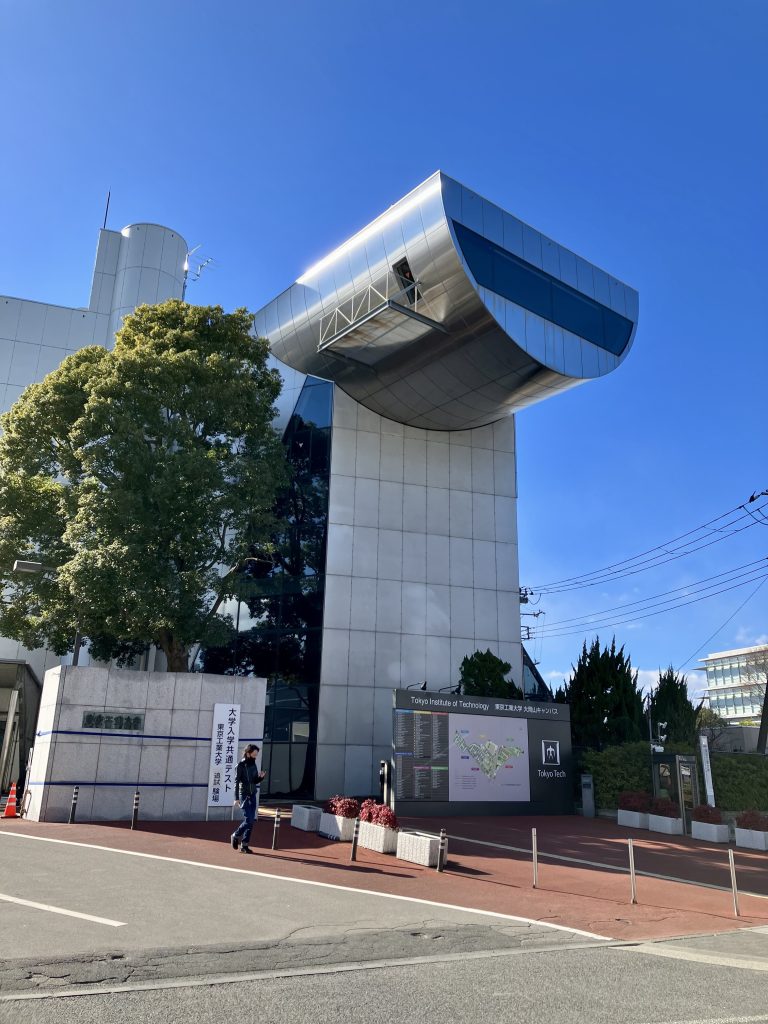
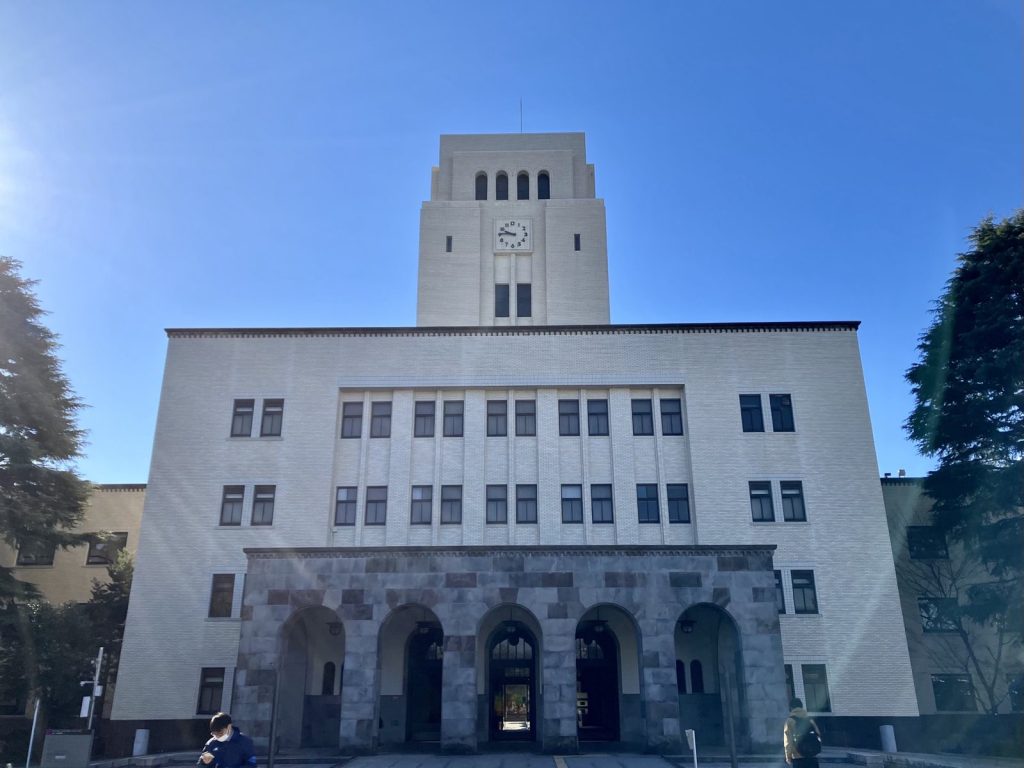
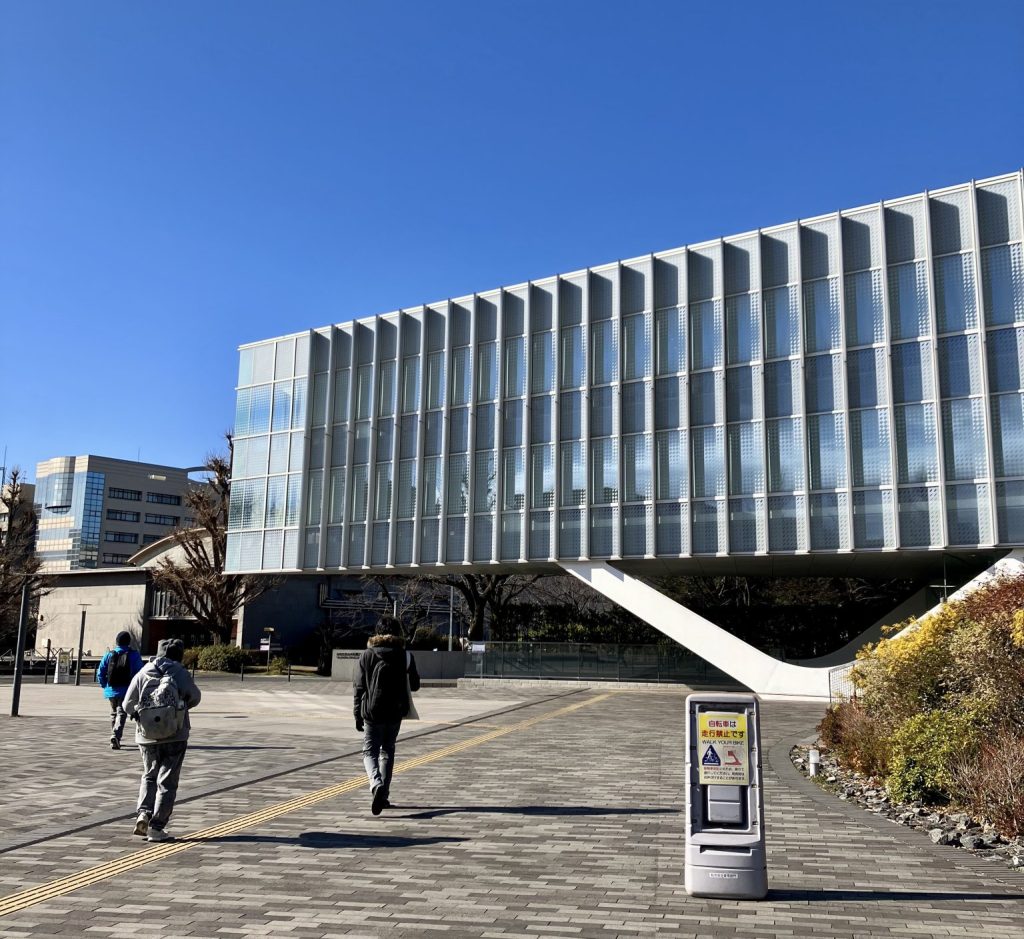
In the first week of training, Dr. Wong discussed and demonstrated TokyoTech’s current process for sample preparation, and 2D gel electrophoresis. The second week of training was focused on performing the whole procedure with the supervision of Dr. Wong. Each team had a chance to experience performing the experimental procedures, specifically plasma treatment using protein depletion kits, protein clean up and quantitation, and analysis using isoelectric focusing, and 2D gel electrophoresis.
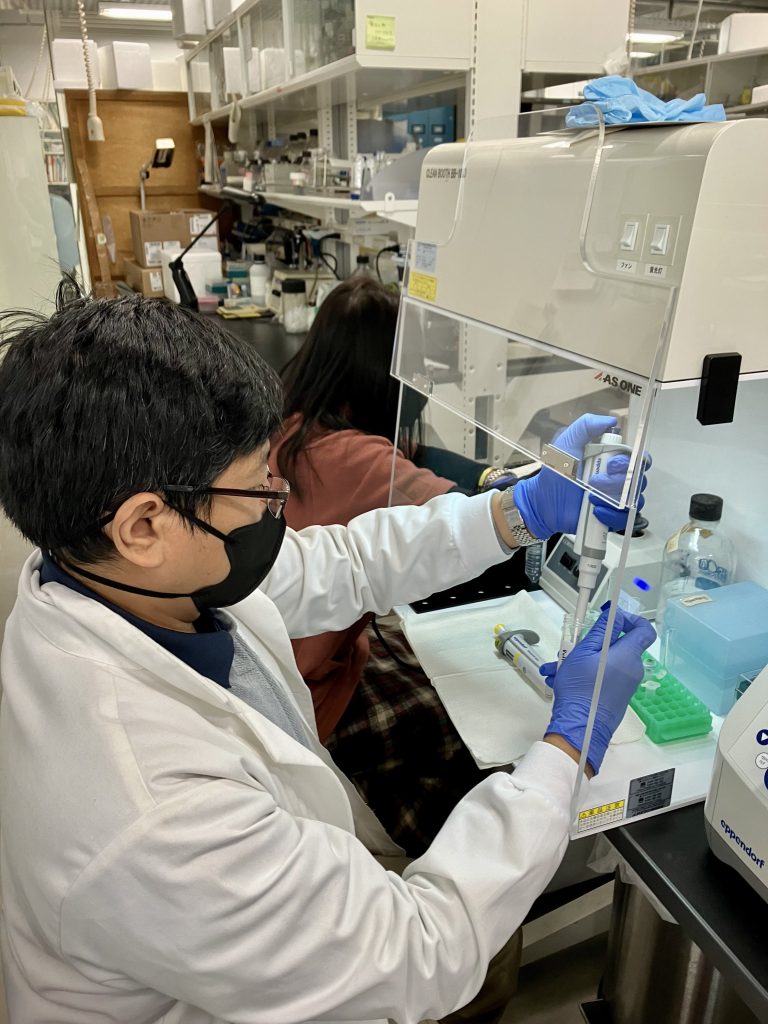
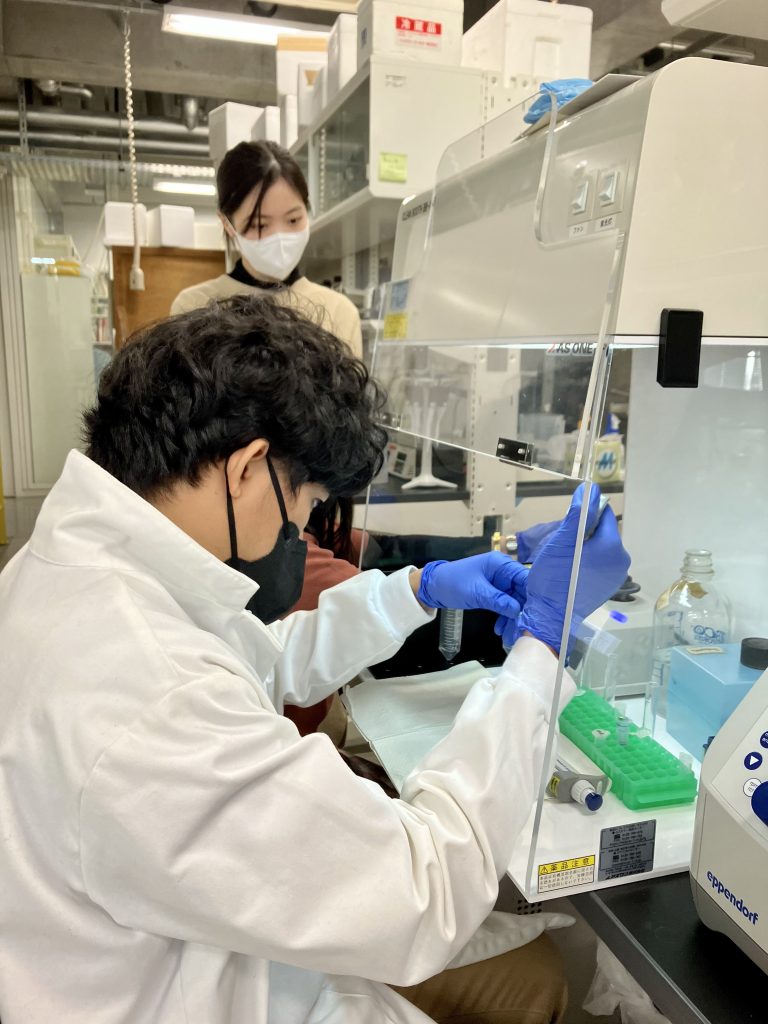
Dr. Neil Andrew Bascos (L) and Owen Tito Mallapre (R) performing the plasma treatment with the guidance of Dr. Wong.
After the training sessions, a short seminar was held to showcase each visiting team’s institution and research work. Dr. Bascos was the first to present and discuss the research and contributions of PGC during the pandemic, as well as introduce the PPMF and its services. Meanwhile, Dr. Roytrakul discussed the different LC-MS methods and data analysis performed at the NSTDA, particularly their own protocol for peptide barcoding of tissue, serum, and saliva samples.
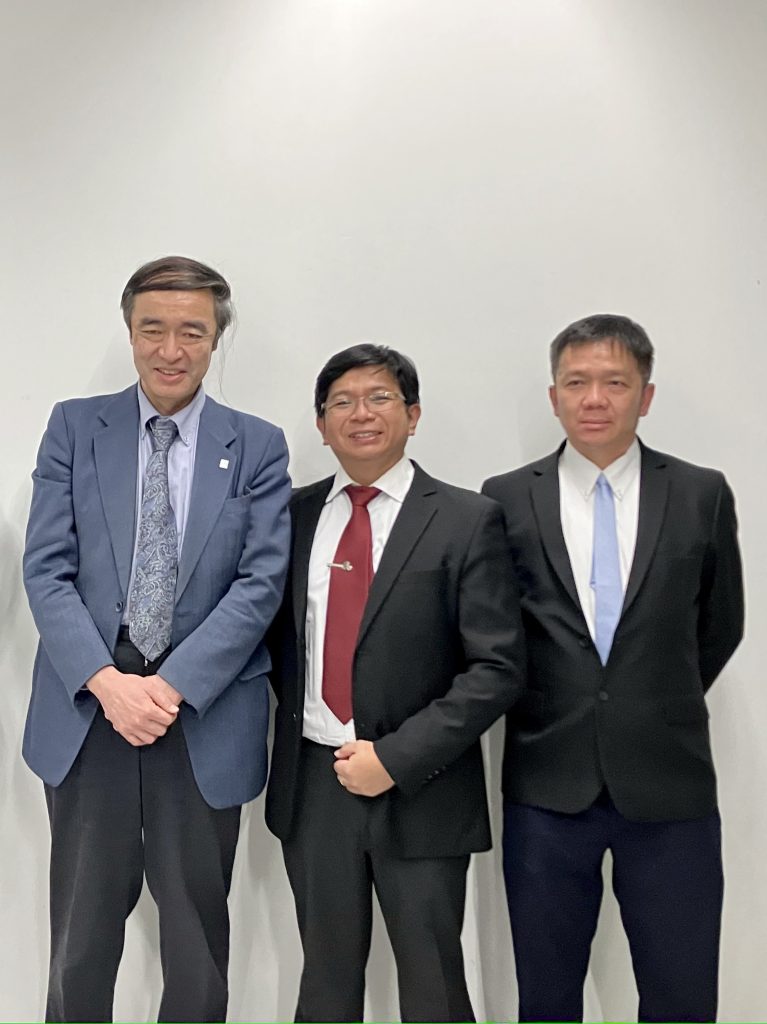
L-R: Dr. Nobuhiro Hayashi of Tokyo Institute of Technology; Dr. Neil Andrew Bascos of PGC Protein, Proteomics and Metabolomics Facility; and Dr. Sittiruk Roytrakul of National Center for Genetic Engineering and Biotechnology
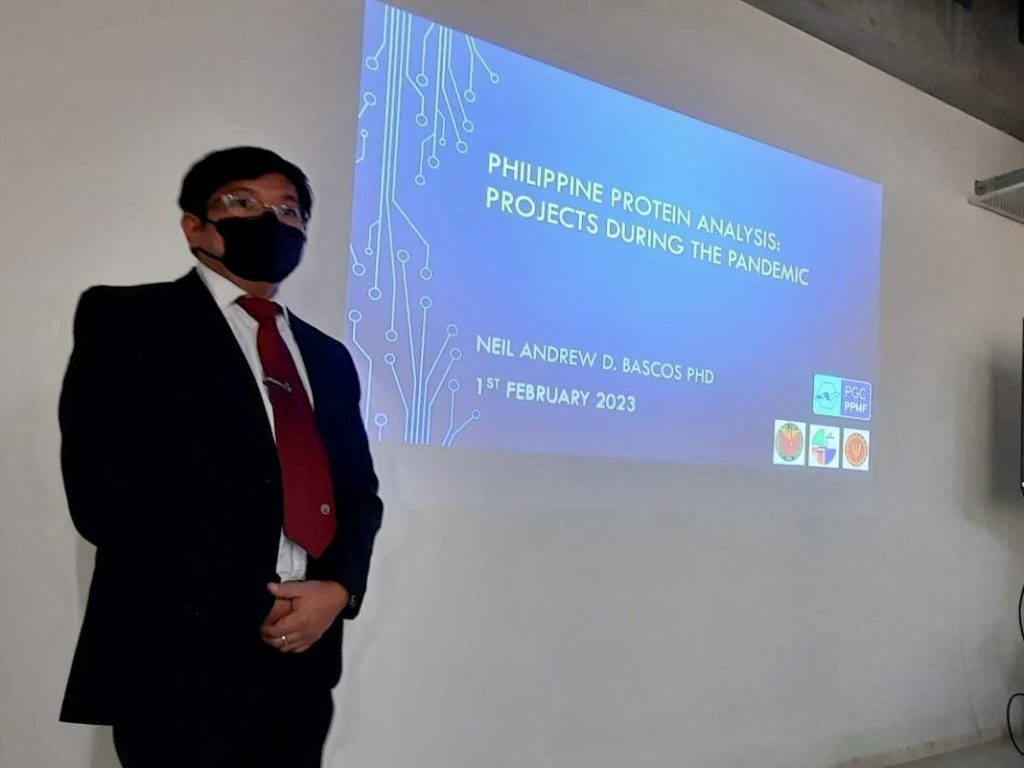
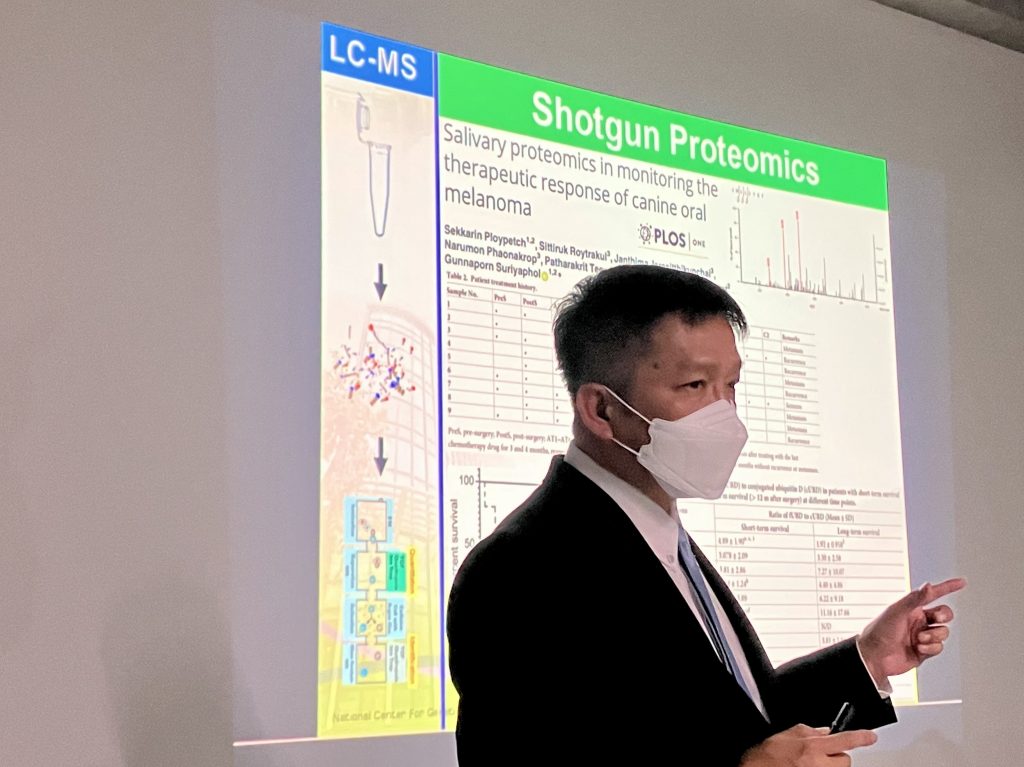
Upon the return of the Philippine eAsia team, an echo training on 2D gel electrophoresis was conducted for the other PPMF staff. The facility will be adopting the current 2D gel electrophoresis procedure for the facility’s protein analysis service. The whole e-ASIA team is currently planning future collaborative opportunities between the institutions. Through continued cooperation, the team hopes to ensure the effective and equitable application of multi-OMICS technologies for the Asian region.
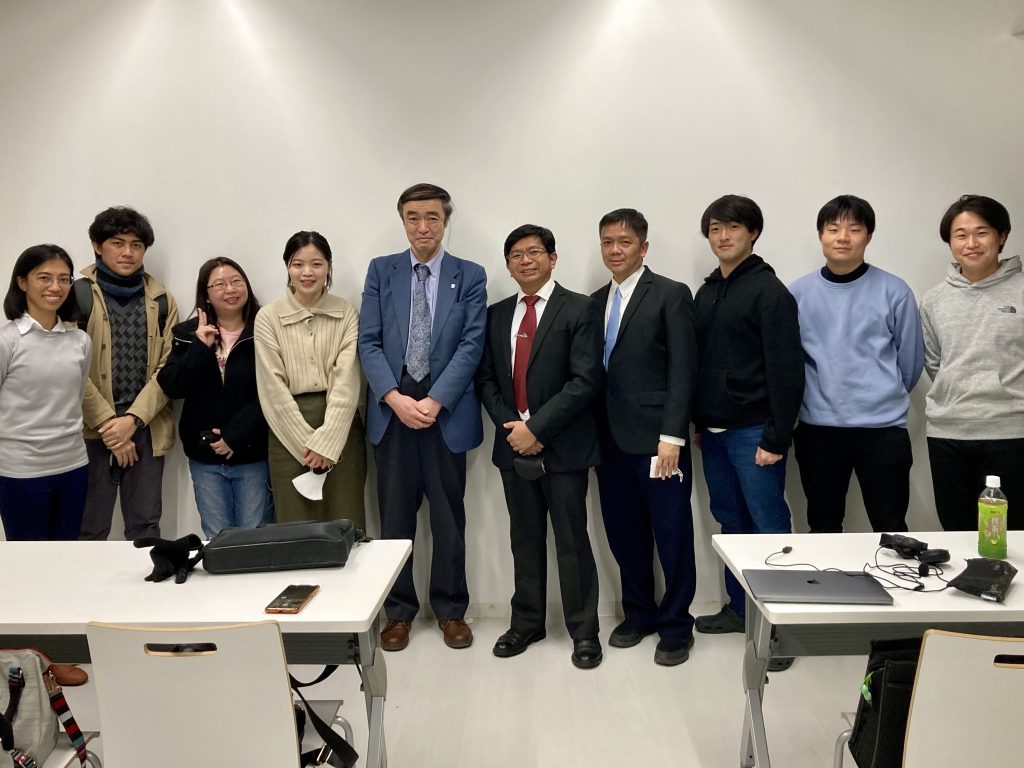
L-R: Abigail Ruth Velasquez and Owen Tito Mallapre (PGC-PPMF), Suthathip Kittisenachai (Biotec), Dr. Sing Ying Wong and Dr. Nobuhiro Hayashi (TokyoTech), Dr. Neil Andrew Bascos (PGC-PPMF), Dr. Sittiruk Roytrakul (Biotec), and three graduate students of Dr. Hayashi
For more information on the different research projects of PPMF, you may visit PPMF Research Projects. For collaborations, email us at ppmfacility@pgc.edu.ph with the subject “COLLAB: [topic/field]”
